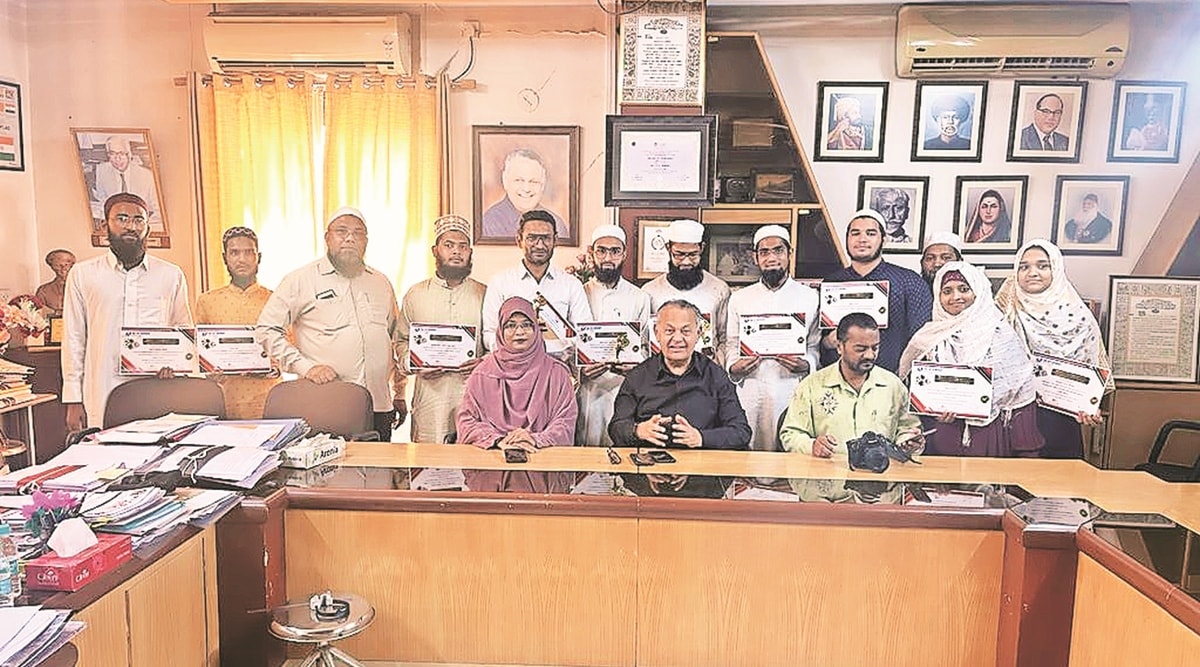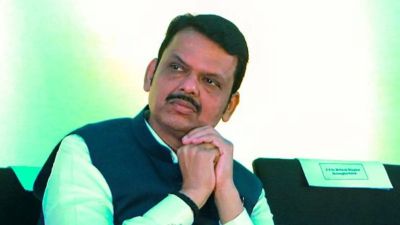‘There was double backwardness’: A group modernising madrasas
Shahnawaz and Ansari are teachers at madrasas, private-run institutions that impart Islamic instruction and form an integral part of the educational system for a large number of the country’s 20 crore Muslim population.
 P A Inamdar, chairman of Pune’s Azam Campus, now P A Inamdar University, where the training was held. Express
P A Inamdar, chairman of Pune’s Azam Campus, now P A Inamdar University, where the training was held. ExpressIt was the first time they used MS Word. As they typed the first words on that small, white screen, Mohammad Asad Ansari and Muhammad Shahnawaz knew they had thrust open the door to a world of opportunity for millions of Muslim students in the country.
Shahnawaz and Ansari are teachers at madrasas, private-run institutions that impart Islamic instruction and form an integral part of the educational system for a large number of the country’s 20 crore Muslim population.
While Ansari teaches Urdu at Madrasa Zeenatul Quran in Delhi’s Seelampur, Shahnawaz teaches Islamic Studies at Jamia Ayesha Lilbanat, a college for women in Uttar Pradesh’s Muzaffarpur district.
From August 22 to September 22, the two were part of a group of 20 Muslim teachers that was intensively trained in Pune, the focus of the course being digital learning and communications, particularly spoken English. “At madrasa, the focus really is on Islamic Studies and subjects like moral sciences…how you should behave in society, etc.… We don’t teach modern subjects such as science. These subjects should also be taught,” Shahnawaz said.
During the training, he said, some of them were using a keyboard and holding a mouse for the first time.
Aimed at upgrading the skills of madrasa teachers, and also those who teach at schools run by Muslim organisations, the course is the result of months of dedicated strategising by the Alliance for Economic and Educational Development of the Underprivileged (AEEDU).
While it came under spotlight recently after reaching out to RSS chief Mohan Bhagwat to discuss issues related to the Muslim community, AEEDU was born during the Covid-19 pandemic.
As schools and colleges were shut and classes shifted online, the attention of a group of Muslim intellectuals and friends was drawn to the country’s underprivileged communities. They took it upon themselves to help.
With most members of its leadership team educationists, AEEDU’s focus was on education.
Shahid Siddiqui, AEEDU’s general secretary, said that when the group began work, it realised that in terms of education Muslims were more underprivileged than other communities. “Students from these schools, including madrasas, have no future,” he said.
Siddiqui said the situation for Muslims was unlike that of Christians, “who have a robust education system”, and students from SC/ST communities, “who also have some advantages through reservations”. The gap, he said, was acutely visible in digital education. “So there was a double backwardness — in education and digital literacy,” he said.
“If we can prepare our students properly, their employability will increase. This is the age of technology; we need to adapt with the times,” he added.
With the first batch trained, AEEDU’s efforts are already rewarding. At his madrasa in Seelampur, Ansari said students are taught only Urdu, Hindi, English, Arabic, and calligraphy. There are computer classes for older students too, but no “modern” subjects. “That conversation within madrasas must start now,” he said.
Besides former Union Minority Affairs minister K Rahman Khan as mentor, AEEDU’s leadership team includes former Aligarh Muslim University V-C Lt Gen Zameer Uddin Shah, former CEC S Y Quraishi, former Delhi L-G and former V-C of Jamia Millia Islamia Najeeb Jung, K R Mangalam University chancellor Prof Dinesh Singh, among among others.
The group’s efforts aren’t restricted to Muslims — Jung said AEEDU is looking “at a very broad canvas” to improve educational standards among the most underprivileged, “obviously aiming at Dalits, Muslims and other poor sections of society.”






